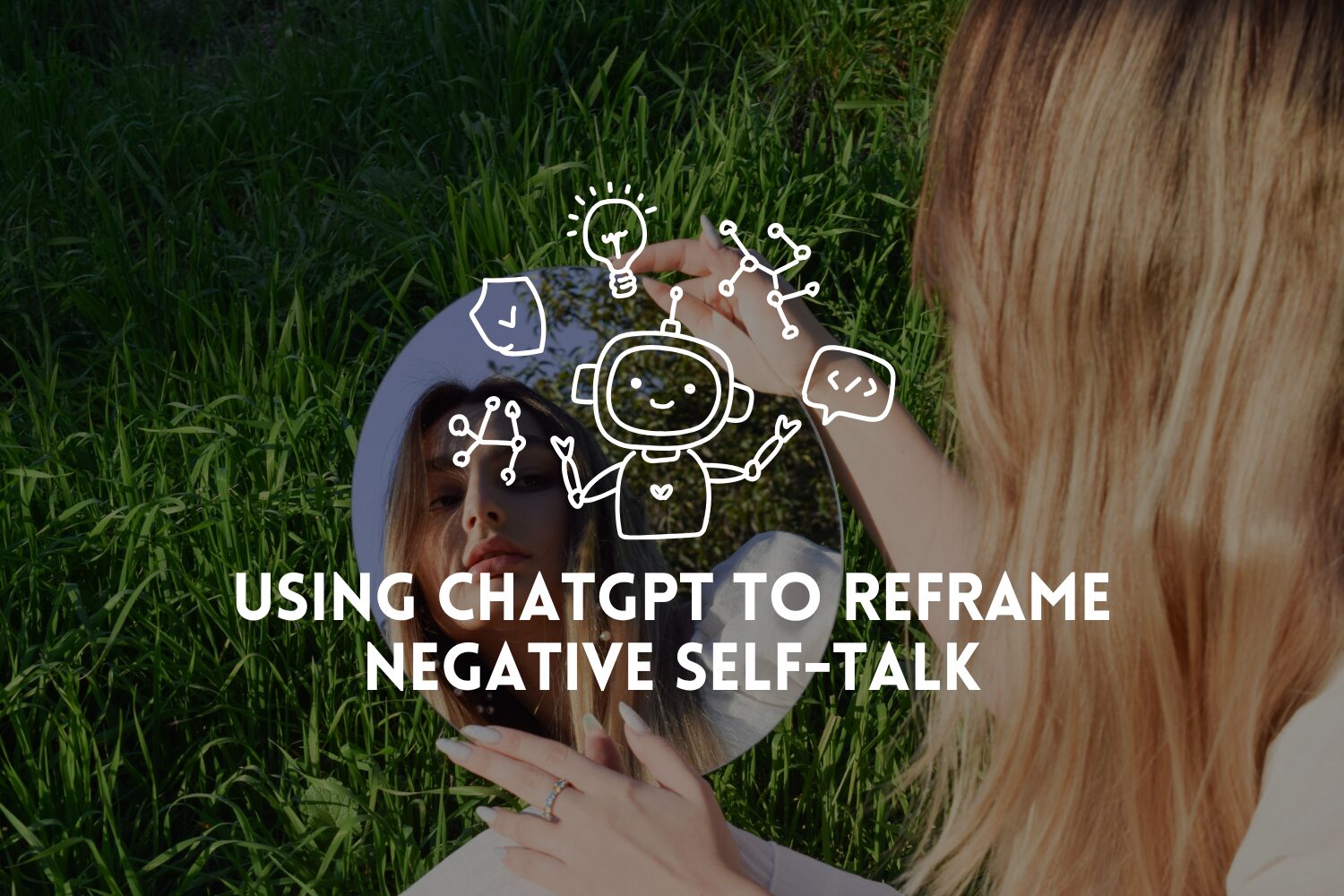Hey there, friend!
Let’s get real for a second: everyone struggles with negative self-talk. Those sneaky thoughts that creep in and tell you you’re not good enough, smart enough, or just not “enough” they’re universal, but that doesn’t make them any less damaging. If you’ve ever caught yourself spiraling with self-doubt or harsh inner criticism, you’re definitely not alone. And the good news? You can change the narrative, and you don’t have to do it alone. That’s where ChatGPT comes in think of it as your friendly, always-available confidence coach!
What’s the Deal with Negative Self-Talk?
Negative self-talk is like that annoying inner critic who never seems to take a day off. It’s the voice that pipes up when you miss a deadline (“I’m such a failure”) or when you don’t get the job you wanted (“I’m just not cut out for this”). We all have those moments, but the real danger comes when we let those thoughts define us and shape our self-worth.
If you’re curious about where these patterns come from, check out Understanding and Challenging Deep-Rooted Beliefs for a deeper dive into how childhood, culture, and past experiences shape our inner dialogue.

How ChatGPT Can Help
Now, here’s where things get fun. ChatGPT isn’t just an AI for writing essays or brainstorming ideas; it can also be your partner in combating negative self-talk. Think of it as a supportive friend who’s always available to help you reframe those harsh thoughts no judgment, just encouragement.
This approach is a game-changer if you’re on a journey of self-love and healing, and it’s especially helpful when you need a quick confidence boost.
1. Identify the Thoughts
The first step in tackling negative self-talk is awareness. Write down those negative thoughts when they pop up, or even better, open up a chat with ChatGPT and spill it all out. Whether it’s “I’m terrible at public speaking” or “I’ll never get promoted,” don’t hold back.
If you love journaling, you might enjoy the 30-Day Gratitude Challenge it’s a great way to start noticing your thought patterns and shifting your focus toward the positive.
2. Challenge Your Thoughts
Once you’ve got your list, it’s time to challenge those thoughts. This is where ChatGPT really shines! You can ask it questions like:
- “Is this thought really true?”
- “What evidence do I have that contradicts this thought?”
- “How would a friend talk to me about this?”
This approach helps you dissect those pesky thoughts and see that they’re not as solid as they seem. For more on challenging your inner critic, check out How I Stopped Punishing Myself and Started Feeling Free, where I share my own journey of letting go of harsh self-judgment.
3. Reframe the Narrative
Now comes the fun part, reframing! With ChatGPT, you can work together to turn those negative thoughts into more positive or realistic affirmations. For example, if you wrote down, “I’m a failure because I didn’t get the job,” ask ChatGPT for a better way to frame it. You might get something like, “Not every opportunity is the right fit for me, and that’s okay. I’m learning and growing.” Suddenly, the sting of rejection turns into a lesson in resilience.
If you want to go deeper with affirmations, you’ll love 50 Affirmations to Balance Hormones and Heal PCOS Naturally. These affirmations aren’t just for PCOS, they’re powerful for anyone looking to rewire their mindset.
4. Keep the Conversation Going
Making this a habit is key! Whenever those negative thoughts pop back up, have a little chat with ChatGPT. Ask for encouragement, seek advice, or even request reminders of your strengths. Repeating this process helps train your brain to adopt a more positive outlook over time.
For more ideas on building daily rituals that support your mental health, check out 10 Daily Self-Love Rituals for a Harmonious Mindset and How to Self-Soothe Daily. Both posts are packed with practical tools for nurturing your mind and spirit.
Why Reframing Matters
Reframing negative self-talk isn’t about pretending everything is perfect. It’s about giving yourself a fair shot and seeing yourself through a kinder, more realistic lens. According to Psychology Today, reframing your inner dialogue can boost confidence, reduce anxiety, and help you bounce back from setbacks.
If you’re struggling with needing approval from others, you might also relate to How I Overcame the Need for Approval and Found My Self-Worth, where I share how letting go of external validation helped me find inner peace.
Make It a Practice
Like any new skill, reframing negative self-talk takes practice. The more you do it, the easier it becomes. Over time, you’ll notice that your inner critic gets quieter, and your inner cheerleader gets louder.
If you want to make this a daily habit, set aside a few minutes each day to check in with yourself. Use ChatGPT as your sounding board, or try one of the passion projects from the blog to channel your energy into something creative and uplifting.
And don’t forget the power of gratitude. Even on tough days, finding one thing to be grateful for can shift your mindset in powerful ways.
Conclusion
Negative self-talk can make us feel isolated and stuck, but you don’t have to stay there. By using tools like ChatGPT, you can reframe those thoughts and build real confidence, one conversation at a time. The next time you catch yourself spiraling, remember: you have the power to flip the script—and you can even have a little fun while you’re at it!
Embrace the power of technology, be kind to yourself, and know that you’re not alone on this journey. For more support, inspiration, and practical self-love tools, keep exploring EuphoriaWithin.com.
So, what are you waiting for? Give it a try and start chatting your way to a more positive you! Happy reframing! 🌟




